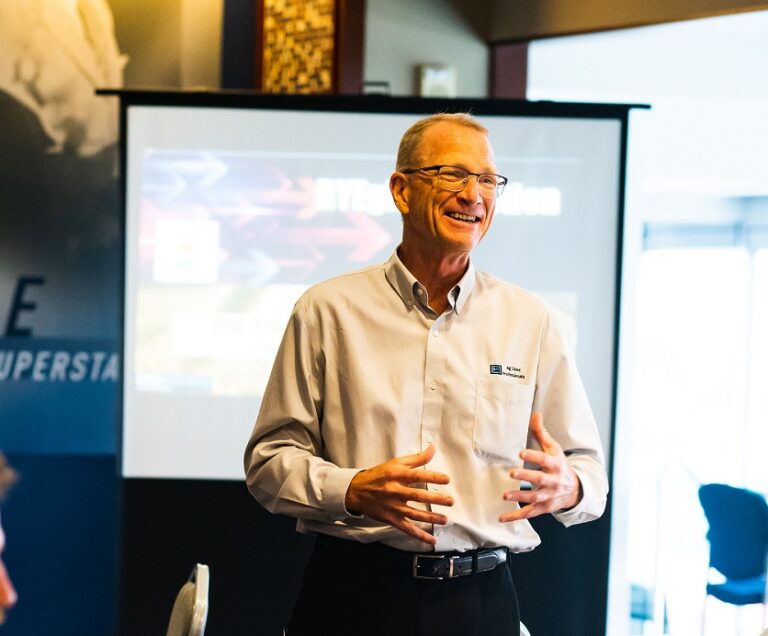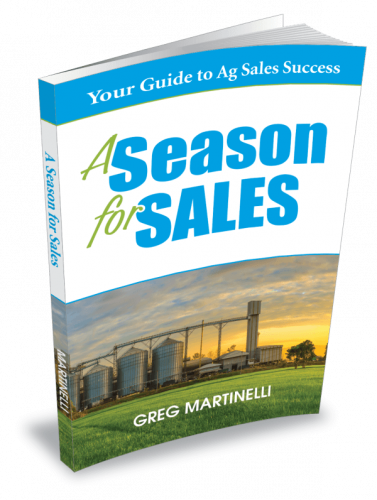It’s a very fine line
There is a very fine line in the sales world that surrounds upselling.
Upselling defined: a sales strategy that encourages a customer to buy a higher priced product to increase the margin of a sale. A very close relative of Upselling is Cross-Selling which is selling someone add-on products and services to supplement their initial purchase. For our definitions today, I’m going to refer to both of these selling methods as Upselling.
Over the years, most of us have heard about the positive financial and sales results that go with upselling. We train our salespeople and our customer service teams to engage in this strategy.
Most of us have been on the receiving end of upselling. “Would you like fries with that?” is the classic restaurant upsell. It’s the win-win-win of upselling. We love it because of course, we want fries. The employee wins as it’s an easy sale and they don’t feel “pushy”. The restaurant owner loves it because they make more money, have happier customers, and more productive employees.
However, and this is a very important point for everyone out there who sells or works in customer service or who leads these teams – the purpose of the upsell has to be in the best interest of the buyer and not for the intention of getting more sales. Here’s why.
We are extremely transparent in our intentions when working with a customer. If our intention is to help our customers by making sure their original purchase is successful, then our upselling is viewed by customers as helpful. However, if they get the slightest feeling that our intention is to just sell more products or some form of a sales technique, then you just put yourself on the other side of the trust line.
By trust line, I mean the customer can no longer trust your advice. For example, all of us have taken our car in for a repair. Our tires were sounding funny or something was rubbing when you turn the wheel. The diagnosis is bad breaks. Soon, the service writer tells you the damages are about $420 for fixing your breaks. By the way, your fan belt is worn and you might as well get a radiator flush if you haven’t had one. Before we can say anything, the tally is up to $604. You might be saying, “But Greg, maybe that’s true. Maybe your car does need new tie rods, a radiator flush, and a fan belt. What would happen if that serpentine belt breaks in the middle of the desert?” Sure, these can be genuine repairs that need to be made. And if presented with this information, I might find it helpful. But if this happens every time I take it to that garage, I’m soon convinced this is just an unneeded upsell. I can no longer trust them.
As someone who drives a lot of miles and needs a good mechanic to keep me in business, I must have a trusting relationship with a service station. It’s one of the first businesses that I search for when moving to a new town.
If I truly do need new tie rods, I need to know that preferably before one disconnects on a highway in western Kansas. So, how do I decide who is upselling for good reasons versus making more money for their business? More importantly, how does your customer determine who they can trust when someone from your company attempts to upsell them?
Here are some thoughts on it:
- As an owner or salesperson, you will be instantly viewed as a commissioned salesperson. The more you sell, the more you personally make. Know this when talking with customers. Customers will initially have some skepticism when there is a conflict of interest. To combat this, an easy trust-building method is to explain the customer’s solution in a low, medium, and high-dollar option. For example, you could repair that leaky pipe with an $8 tube of caulk to see if that does it. If not, then try a rubber connector with hose clamps for $15. If not, then you could replace the pipe for about $30. This is simple and shows a lack of bias towards the most expensive option.
- The importance of upselling. Please do not let them leave the store or finish the sales conversation without buying everything they will need to use your products. Especially if they are new to the business, to your store, or never used the product before. Nothing is more frustrating than making a second trip back to a store to buy something I need in order to use the product you just sold me. If batteries, washers, fuses, switches, or gaskets are not included but necessary, then upsell me every single time. If you sell a sprayer but it doesn’t come with a set of valves that are needed, then please let the customer know this before they finish buying the sprayer.
- As a sales leader, be very careful how you urge or train your customer service people to upsell. I see this going horribly wrong in a lot of businesses. I’ve seen it flop more times than not. Not all, but many customer service people truly do not want to “sell”. They see their job as helping customers find what the customer “asks” for. They don’t like the responsibility of having a sales target hang over their heads as a requirement. Some will just ignore the directive and not upsell at all unless the customer asks. Some will give it a solid try for about a day and then tell you how horrible it was. Some will go out with too much enthusiasm. For example, working with retail feed dealers, they would often hire someone who was “horsey”. Meaning they knew a lot about horses. The struggle was this new “horsey” employee would consistently try to upsell every horse customer to the highest priced products. Eventually, customers would complain to the manager or they simply went to a different store.
- The cross-selling part of upselling can be embedded in everything you do as it saves your customer time running from one end of the business to another or clicking on multiple web pages to complete their purchase. It saves them time by not letting them forget to buy needed supplies. It shows that you care enough to make their shopping experience easier, faster, and better.
I hope these thoughts give you some clarity about upselling. It truly is a fine line between providing service to your customers and being a trusted vendor for them.


